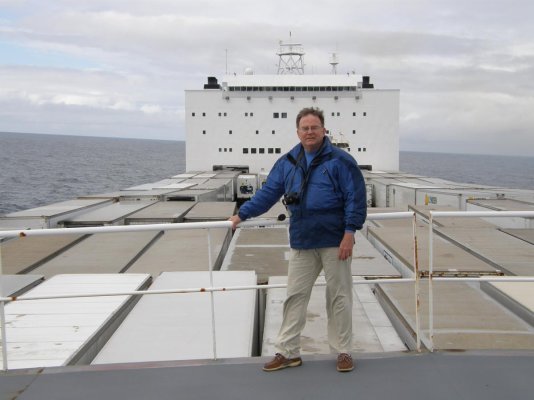I believe the weight of this calamity can be placed on several shoulders.
1. The Captain should not have stayed asleep for eight (8) hours while his ship was so very close to an extremely dangerous storm.
2. The ship's quality management services at last port of call should have had the hatch that broke loose in better fastened condition.
3. I do not know why senior officers in the crew did not take time to, nor make ample effort to, succeed in awakening the sleeping Captain so that he could be made fully aware of the dangers at hand.
4. TOTE's main office should always have on hand an expert climatologist who can oversee weather conditions during big storms as well as a TOTE's ship heading anywhere near the storm. The climatologist should have authority to at any time make sure [by phone or other means] that the Captain of a ship near a storm confabs directly with he/her for cooperatively made decisions of the ship's heading. In cases such as this... there should be a company policy that if the Captain is asleep - then, immediately wake him/her the heck up!!
1. The Captain should not have stayed asleep for eight (8) hours while his ship was so very close to an extremely dangerous storm.
2. The ship's quality management services at last port of call should have had the hatch that broke loose in better fastened condition.
3. I do not know why senior officers in the crew did not take time to, nor make ample effort to, succeed in awakening the sleeping Captain so that he could be made fully aware of the dangers at hand.
4. TOTE's main office should always have on hand an expert climatologist who can oversee weather conditions during big storms as well as a TOTE's ship heading anywhere near the storm. The climatologist should have authority to at any time make sure [by phone or other means] that the Captain of a ship near a storm confabs directly with he/her for cooperatively made decisions of the ship's heading. In cases such as this... there should be a company policy that if the Captain is asleep - then, immediately wake him/her the heck up!!


 way more complicated than many here would make it....
way more complicated than many here would make it....